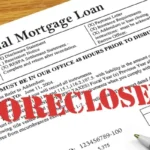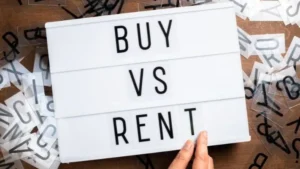Last updated on November 25th, 2024 at 09:24 am
Divorce is never easy, and when a VA loan is involved, things can become even more complicated.
The decisions you make during the divorce can have a lasting impact on your financial future, especially if a home financed by a VA loan is part of the marital assets.
Let’s take a deep dive into what happens to your VA loan after a divorce, focusing on your options for the home, the mortgage, and how to handle VA loan entitlement.
We’ll also dive into the impact of loan assumptions, refinancing, and how to navigate entitlement restoration after the split.
In this Article
What Happens to a VA Loan in a Divorce?
When a Veteran or service member divorces while using a VA loan, there are several options to address the loan and property:
- Refinance: The civilian spouse can refinance the loan into their name. This requires applying for a new loan based on their own credit score and financial situation.
- Release of Liability: Veterans may request a release of liability to remove their ex-spouse’s name from the loan. However, this option is only available if the ex-spouse was a joint borrower on the original loan.
- Sell the Home: Selling the home can provide a clean resolution. The VA loan is paid off using the sale proceeds, and any remaining profit is divided between the parties.
If the civilian spouse chooses to remain in the home after the divorce, they must assume responsibility for the mortgage. Failing to do so would violate VA occupancy requirements, potentially impacting the Veteran’s eligibility for future VA loans. Additionally, the Veteran’s entitlement remains tied to the loan until it’s paid off or refinanced, which could limit their ability to secure another VA loan.
In cases where credit falls below the typical 620 threshold, some VA lenders may still approve a loan by considering the overall financial picture and compensating factors.
Understanding VA Loan Entitlement
Before getting into the specifics of divorce and VA loans, it’s important to understand VA loan entitlement. Entitlement refers to the amount the Department of Veterans Affairs guarantees to a lender if a veteran defaults on a loan. This entitlement allows veterans to borrow without making a down payment, up to certain limits.
There are two types of entitlement:
| Type of Entitlement | Description |
|---|---|
| Basic Entitlement | Guarantees up to $36,000 on loans for homes valued up to $144,000. This entitlement can be applied to lower-cost homes. |
| Bonus Entitlement | Also known as Second-Tier Entitlement for homes priced above $144,000. Allows veterans to borrow more than $144,000 without a down payment, even if they have an existing VA loan. |
When you take out a VA loan, your entitlement becomes tied to that mortgage. During a divorce, how the home and mortgage are handled will determine whether or not the veteran can restore their entitlement.
Options for the Home After Divorce
Divorcing couples with a VA loan-backed home must decide what to do with the property. The three main options include:
1. One Spouse Keeps the Home
If one spouse is awarded the home in the divorce settlement, they can choose to stay in the home and continue making payments. However, if the non-veteran spouse is keeping the home, they cannot keep the VA loan unless they were co-borrowers on the original mortgage. The VA loan program has strict requirements that the property must remain the veteran’s primary residence.
If the non-Veteran spouse keeps the home and they were not co-borrowers, they will need to refinance the VA loan into a conventional mortgage. This process removes the veteran from the loan and restores their VA entitlement.
- Loan Assumption: If the non-Veteran spouse was a co-borrower on the original mortgage, they may be able to assume the VA loan’s terms, including its interest rate and monthly payment. This keeps the loan intact without the need for refinancing.
- Impact on Entitlement: If the non-Veteran spouse assumes the loan, the veteran’s entitlement remains tied to the home until the loan is paid off or refinanced. This means the veteran may not be able to use their VA loan benefits to purchase another home until the loan is satisfied.
2. Selling the Home
Selling the home is often the simplest solution when both parties decide they no longer want to stay in the property. If the home is sold, the proceeds from the sale can be split between the two spouses based on the divorce settlement terms.
Once the VA loan is paid off in full, the veteran’s entitlement is fully restored, allowing them to use their VA loan benefits for another property in the future.
- Restoring Entitlement: After the sale, the VA loan is paid off, and the veteran’s entitlement is restored, which frees them to use their VA loan benefits again.
- Splitting Profits: Any profits from the sale of the home are divided according to the divorce settlement.
3. Refinancing the Loan
If the non-veteran spouse wants to keep the home but cannot assume the VA loan, refinancing the mortgage is another option. In this case, the non-veteran spouse must refinance the loan into a conventional mortgage in their name, which releases the veteran from the loan obligation and restores their VA entitlement.
- Conventional Refinance: A conventional refinance requires the non-veteran spouse to qualify for a new mortgage based on their own credit score and financial situation. This process allows the veteran to be removed from the loan and restores their entitlement.
VA Loan Assumption During Divorce
In some divorce cases, the non-veteran spouse may want to assume the VA loan. This option allows the non-veteran spouse to keep the existing mortgage with the same terms, including the interest rate and monthly payments. However, the eligibility for loan assumption depends on several factors.
When Can a Non-Veteran Spouse Assume the VA Loan?
The non-veteran spouse can assume the VA loan if:
- They were a co-borrower on the original mortgage, or
- They meet the lender’s financial qualifications for loan assumption.
If the non-veteran spouse assumes the loan, they take full responsibility for the mortgage payments. However, it’s important to note that loan assumption does not restore the veteran’s entitlement. The veteran’s entitlement will remain tied to the home until the loan is fully paid off, refinanced, or the home is sold.
Impact on VA Entitlement
If the non-veteran spouse assumes the VA loan, the veteran’s entitlement will remain locked with the home. This means that the veteran will not be able to use their VA loan benefits to purchase another property until the existing loan is fully paid off or refinanced. This can be a significant limitation for veterans who wish to use their VA loan benefits for a new home.
VA Loan Entitlement Restoration After Divorce
Restoring your VA loan entitlement after a divorce is crucial if you plan to use your VA benefits for future home purchases. Entitlement can be restored in several ways, depending on how the home and mortgage are handled during the divorce.
Methods for Restoring VA Entitlement:
| Method | How It Works |
|---|---|
| Sell the Home | Once the home is sold, and the VA loan is paid off, the veteran’s entitlement is restored. |
| Refinance the Loan | If the non-veteran spouse refinances the VA loan into a conventional mortgage, the veteran’s entitlement is restored. |
| Loan Assumption | If the non-veteran spouse assumes the loan, the veteran’s entitlement remains tied to the home until the loan is paid off or refinanced. |
| Foreclosure or Short Sale | In cases of foreclosure or short sale, the veteran may lose part of their entitlement until any outstanding loan balance is repaid. |
Special Cases: Foreclosure and Short Sale
If a veteran’s home goes into foreclosure or is sold in a short sale during or after the divorce, the veteran’s entitlement may not be fully restored. In these cases, any outstanding loan balance must be repaid before the entitlement can be fully restored. This can make it more difficult for Veterans to qualify for another VA loan in the future.
The VA Loan Occupancy Rule After Divorce
One key requirement of the VA loan program is that the home purchased with a VA loan must be the primary residence of the borrower. In the case of divorce, this rule can complicate matters, especially if the veteran moves out of the home and the non-Veteran spouse stays.
What Happens to the Occupancy Rule?
If the veteran no longer lives in the home as their primary residence, the non-veteran spouse must either:
- Refinance the loan into a conventional mortgage, or
- Sell the home to comply with the VA loan’s primary residence requirement.
If the veteran remains on the loan but no longer occupies the home, it may violate the VA occupancy rule unless special circumstances apply, such as active-duty deployment.
VA Loan Refinancing Options After Divorce
Refinancing can be an effective way to remove one spouse from the mortgage after a divorce, but the process differs depending on whether the spouse remaining in the home is the veteran or the non-veteran.
1. VA IRRRL (Interest Rate Reduction Refinance Loan)
The VA IRRRL is a streamlined refinance option that allows veterans to refinance their existing VA loan to a lower interest rate with minimal documentation. This option is only available to veterans who are staying in the home.
- Who Should Use This: Veterans who want to lower their mortgage payments or secure a better interest rate after divorce.
2. Conventional Refinance
If the non-veteran spouse is staying in the home, they will need to refinance the VA loan into a conventional mortgage. This removes the veteran from the loan and restores their entitlement.
- Who Should Use This: Non-Veteran spouses who want to keep the home but are not eligible to assume the VA loan.
Can You Get Another VA Loan After Divorce?
Yes, veterans can get another VA loan after divorce, provided their entitlement has been restored. Whether you’re eligible for another VA loan depends on how the home and mortgage were handled during the divorce.
How to Restore Entitlement:
- Sell the Home: Selling the home and paying off the VA loan fully restores your entitlement.
- Refinance: If the non-veteran spouse refinances the loan into a conventional mortgage, the veteran’s entitlement is restored.
- Loan Assumption: If the non-veteran spouse assumes the loan, the veteran’s entitlement remains tied to the property until the loan is fully repaid.
Veterans can use their restored entitlement to purchase another home with no down payment, just as they did with their first VA loan.
The Bottom Line
Divorce adds an extra layer of complexity to VA loans, particularly when it comes to deciding how to handle the home, mortgage, and entitlement.
Veterans have several options, including selling the home, allowing the non-veteran spouse to assume the loan, or refinancing to remove themselves from the mortgage.
The key is understanding how entitlement works and ensuring that it is restored, allowing veterans to continue using their VA loan benefits in the future.
Frequently Asked Questions
1. Can I keep my VA loan after a divorce?
Yes, you can keep your VA loan after a divorce, provided you continue to meet the VA’s occupancy requirements, which state that the home must remain your primary residence. If the non-veteran spouse is awarded the home, they will need to either assume the loan or refinance.
2. Can my non-veteran spouse assume the VA loan?
Yes, a non-veteran spouse can assume a VA loan if they were a co-borrower on the original mortgage or if they meet the lender’s financial qualifications for loan assumption. However, the veteran’s entitlement remains tied to the home until the loan is paid off.
3. What happens to my entitlement if my ex-spouse keeps the house?
If your ex-spouse assumes the loan, your VA entitlement will remain tied to the property until the loan is fully repaid. Your entitlement is only restored once the loan is refinanced or paid off.
4. Can I restore my entitlement after divorce?
Yes, your entitlement can be restored if the home is sold, the loan is paid off, or your ex-spouse refinances the mortgage into a conventional loan.
5. Can I get another VA loan after a divorce?
Yes, you can get another VA loan after a divorce as long as your entitlement has been restored. This typically requires selling the home, paying off the loan, or having your ex-spouse refinance the mortgage.






















